QuestionQUESTION: Hi,
I brought a new kitten home from a shelter yesterday. She is 16 weeks old and was found wandering about a week ago. I was told that she does not like to be held but that she is very affectionate and playful. This turns out to be quite true but she does like to snuggle up to my leg. I have also noticed that she does not like to be touched around the head. In all other respects she seems confindent and happy, especially considering yesterday was her first day home. Any thoughts about why this would be and what I can to to make her more comfortable with touch would be great. I do Tellington T touch with my dog so will try this on her as well but right now, it is not possible to be that 'touchy' with her. She grabs my hand and bites.
Thanks in advance
Marli
ANSWER: Mari,
You have a typical feral kitten. And it takes a lot of patience and special handling with them. I have found that they prefer a neck 'massage' (massage just in front/above the shoulder blades) to being actually petted. I have 2 that will be 2 years old that I have had since birth. They are still skittish, and both will let me pet them for an extended time only when they have a toy in their mouth! Neither like to be held or carried, but both sleep with me.
Ferals CAN become affectionate and loving, but it takes a LONG time for them to reach that point. And it takes a lot of time, patience, and love. And when they do reach that point when they are affectionate and loving, they normally still do not like to be held, restrained, and barely even petted. There is a human distrust that is inherited and inbred into them. They will never be like a typical domesticated housecat, but they can follow you around, rub against your legs, and lay next to you happily. Getting ferals as newborns or young kittens you have a better chance for a friendly kitty, but even then they still carry the feral behavior with them. Of course there are exceptions, but that is the standard behavior for ferals. They also usually only bond with one person. And will remain skittish and frightened of strangers.
To protect yourself from bites or scratches you need to watch the feral closely. They will give you warnings when they have had enough petting or touching. Ears will pin back, they may growl, but the main sign is their tail. If it starts twitching or swishing back and forth, the time to stop petting them is....NOW! When you have a feral that doesn't like to be touched....don't. Respect how the cat is and accept it. It will make for a happier living situation. Biting is a reflex action for protection. Pet from behind the head. Coming from the front is a receipe for claws coming out or being bit.
They are very sensitive, so do not yell at them and never hit them! You can undo any trust you have built up. They react to the tone of your voice.
They are natural hunters and enjoy being able to do it. They are happiest being able to be an indoor/outdoor cats. They like to be outside to hunt, but they also like to be inside where it is safe and not scary. You also will run across the ones that never want to go outside again.
If you keep them inside all the time then you have to satisfy that hunting urge to keep them mentally well-balanced and happy. Giving them a raw beef rib bone (I have the butcher cut them in half) satisfies the "fresh kill'. Plus the fibers help clean their teeth. They need stuffed toy mice you can throw so they can chase it and "catch" it. A pet laser light is great for letting them try to catch the "little red bug" on the walls, floors, and ceilings.
You may want to find adopt a kitten about the same age for the kitten to play kitty games with, to learn from, to snuggle with, and to be comfort and companionship when she is alone.
I hope this helps,
Tabbi
---------- FOLLOW-UP ----------
QUESTION: Thank you for the fantastic amount of information you gave. I am however not so sure she is feral. My question was a little premature because she is quite affectionate already (today is her 4th day home). I also noticed that she knows some house rules. No jumping on tables for example. I wanted to feed her on the kitchen table because I have a dog but she refused to get up there - has not problem with other high places. She also already lets me stroke her briefly on the head and down her back, and scratch behind her ears and on her cheeks - but not too long. Her belly is out of bounds which is a pity because it is very soft and fluffy. I think with patience I can build that up. I also pick her up briefly in an unforced manner to get her accustomed to that kind of handling. When she does scratch and bite she has a very soft mouth and nails (most of the time). She also shows no desire to go outside and is perfectly kitty litter trained. Yesterday she started purring.
I am starting to suspect that her last home was overly disciplinarian and that maybe she was smacked. Or it could simply have been nervouseness at being in a new situtation.
Thanks again for your insight.
Marli
AnswerMarli,
It sounds like she is doing well. It will take time for her to acclimate to her new surroundings, new people, and new people. She may not have received much affection previously so the petting may be a new experience...one that she finds she likes! I hope so!
Tabbi

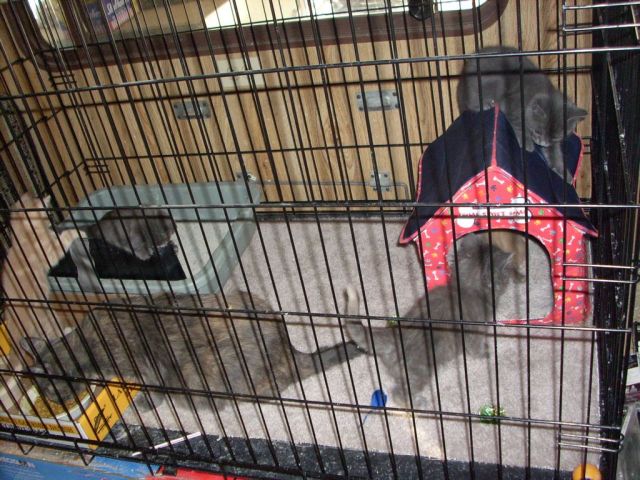 Kitten trying to run outside
QuestionI adopted a 3 month old male tabby a few days a
Kitten trying to run outside
QuestionI adopted a 3 month old male tabby a few days a
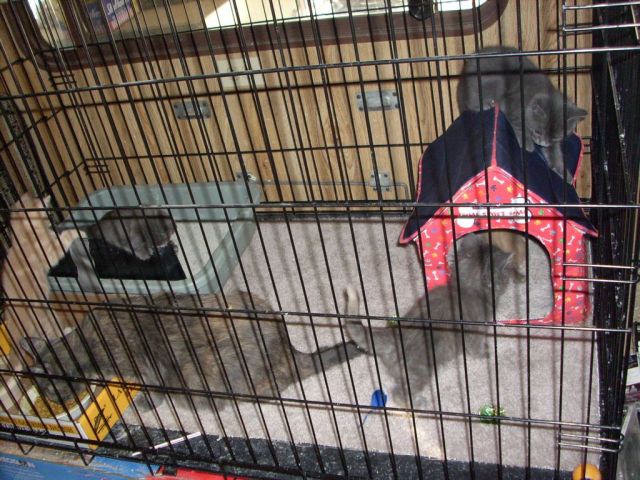 Introducing a new cat
QuestionI would like to get a 2nd cat. Ive heard differ
Introducing a new cat
QuestionI would like to get a 2nd cat. Ive heard differ
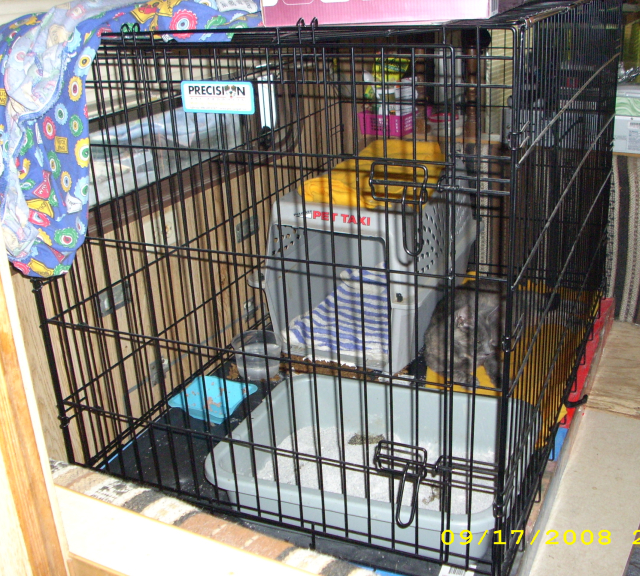 Assimilating a disabled cat into our home
QuestionDear Tabbi,
My husband and I share our home wit
Assimilating a disabled cat into our home
QuestionDear Tabbi,
My husband and I share our home wit
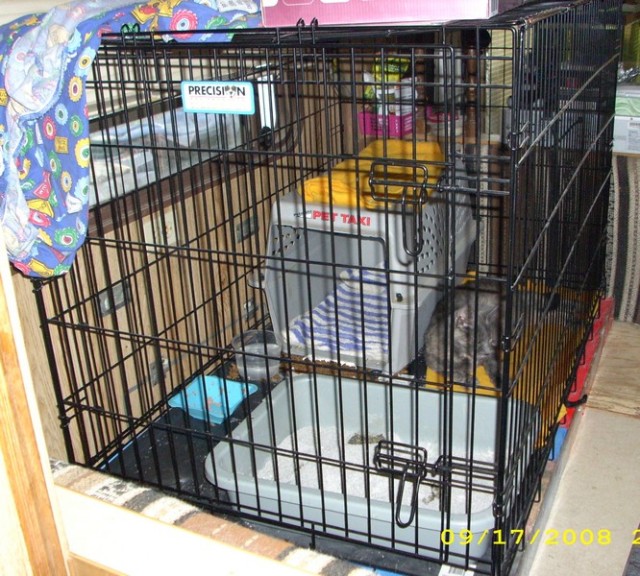 adding a third cat
QuestionI have two female birmans.
they are 4 and 2 an
adding a third cat
QuestionI have two female birmans.
they are 4 and 2 an
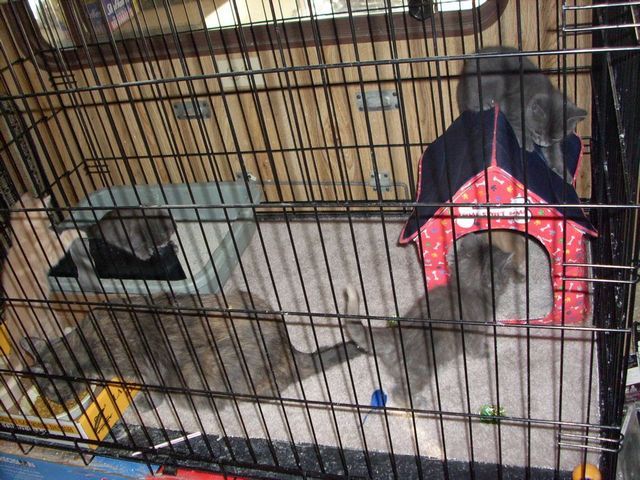 tabby aggressive
QuestionHi,my male cat jasper is 7 years of age and has
tabby aggressive
QuestionHi,my male cat jasper is 7 years of age and has